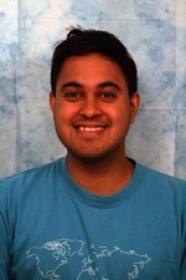
PhD Thesis Proposal
November

9:00 am to 12:00 am
Event Location: NSH 3305
Abstract: Effective use of Machine Learning to support extracting maximal information from limited sensor data is one of the important research challenges in robotic sensing. This thesis develops techniques for detecting and characterizing patterns in noisy sensor data. Our Bayesian Aggregation (BA) algorithmic framework can leverage data fusion from multiple low Signal-To-Noise Ratio (SNR) sensor observations to boost the capability to detect and characterize the properties of a signal generating source or process of interest.
We illustrate our research with application to the nuclear threat detection domain. Developed algorithms are applied to the problem of processing the large amounts of spectrometry data that can be produced in real-time by mobile radiation sensors. We want to understand what can be done at the horizon of detection and with less reliable sensor data. For instance, if the sensors are smaller or less sensitive, can the data still be useful in detecting a radioactive source? The thesis proposes to further study three important challenges robustifying BA’s application to problems in robotic sensing and detection of nuclear threat in heterogeneous systems of inexpensive radiation sensors:
1. Low Signal Detection: We will explore augmenting BA with appropriate computational models to deal with extremely low signal cases, cases where the sensor receives very little signal from the source and/or background. BA has previously shown promise for detecting faint sources, and we want to push BA further to understand exactly at how low a count rate can BA still be successful. We will explore a variety of low count Poisson error models in lieu of Gaussian models typically used in current state of the art algorithms.
2. Online Monitoring of Sensor Reliability: Sensors may malfunction in the field in a variety of ways such as being subject to sensor dropout, stalling, gain drift, or crystal problem effects. By incorporating sensor failure modes into the BA hypothesis space, it may be possible to develop algorithms that are robust to these types of sensor failures and that can appropriately correct the data processing pipeline in light of such challenges.
3. Retrospective Learning: We propose to study Retrospective Learning, a new paradigm that leverages multiple iterative passes between data and hypotheses about the data in order to boost detection of signals of interest. A Retrospective Learning agent can reinterpret past data in light of current world changes that require reevaluation of percepts. We plan to formalize different features of Retrospective Learning such as when and where a robot should retrospect, how much it should retrospect, and how exactly a robot should automate such retrospective processes.
Committee:Artur Dubrawski, Chair
Manuela Veloso
Paul Scerri
Simon Labov, Lawrence Livermore National Laboratory